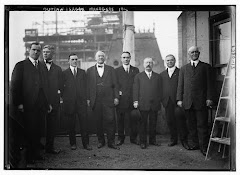Rating: 4 pierogies. It takes a LOT to get me to give something a 5. I thought this was a great book, but it didn't break into 5 territory.
Review: Although written a mere 30 years after Dickens' Great Expectations, I was surprised to find the language in Thomas Hardy's Tess of the D'Urbervilles to be significantly more accessible to a modern reader.
I selected Tess because my friend Katy described it as "COMPLETELY MISEARABLE." I cannot resist such a review.

Tess of the D'Urbervilles follows young Tess of a working class (nearly starving) family named "Durbeyfield" in rural England. Her father is informed that his family actually descends from a line of the D'Urbervilles, a once-thought-extinct noble family. Tess' father sends her out to "make kin" with a local family also named D'Urberville, but it turns out that they actually paid for the name.
The introduction pushes Tess into the hands of Alec D'Urberville who, well to summarize all the ups and downs of this rather long novel, RUINS HER LIFE FOREVER. Tess is a sweet and industrious woman, but she internalizes every brush with bad fortune (and there are certainly many) and blames every one of these unfortunate turns on herself.
This is completely projecting, but I saw Tess as a symbolic of modern American womanhood, and all of the challenges women are facing with health access issues and even larger cultural perceptions toward women. This is not entirely out of place-- apparently in its own time Tess brought issues of womens' morality and sexuality to the forefront of the cultural conversation. These issues cross time and country.
High school is that time where you are supposed to really get into the "Classics." (I suppose that's for college, too, but I did most of my literature classes in German, and the classes I took in English literature were usually obscure ones like Pop Culture, Chaucer, or Children's Literature). My time in high school wasted entirely too much time on Shakespeare. Yes, Shakespeare's good to read, but we didn't have to read his works every single year of high school. That's a lot of time wasted that could have been used on other authors. Tess would be perfect for an 11th or 12th grade lit class. Its language is easy and flowing, and there's enough drama and heartache to get young minds engaged. Lets give Hamlet a rest for a bit, and put Tess on those reading lists.

No comments:
Post a Comment